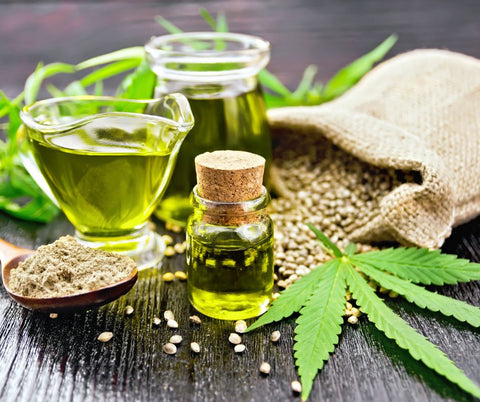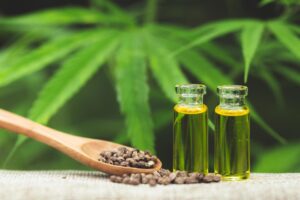In the vast landscape of skincare ingredients, few have journeyed as far as hemp. Once relegated to industrial uses like ropes and textiles, this versatile plant from the Cannabis sativa family is now gracing bathroom shelves worldwide. Unlike its psychoactive cousin marijuana, hemp contains negligible THC—less than 0.3%—making it a safe, non-intoxicating powerhouse for beauty. Derived primarily from hemp seeds, the oil is cold-pressed to retain its nutrient density, offering a natural alternative to synthetic chemicals. As consumers shift toward clean beauty, hemp’s rise is backed by science: studies show it hydrates, soothes, and rejuvenates skin without irritation. With the global CBD skincare market valued at $1.77 billion in 2024 and projected to reach $5.68 billion by 2032 at a CAGR of 18.1%, it’s clear hemp isn’t just a trend—it’s a transformation. Let’s explore why this field-grown gem deserves a prime spot in your daily regimen.
Harvesting History: Hemp’s Ancient Roots in Modern Beauty
Hemp’s story begins millennia ago, cultivated in ancient China around 2800 BCE for fibers and medicine. Fast-forward to today, and its skincare potential stems from rediscovered traditional uses. Indigenous cultures applied hemp extracts to heal wounds and calm irritated skin, a practice now validated by contemporary research. A 2023 review in the Journal of Cosmetic Dermatology highlights hemp-derived cannabinoids’ therapeutic benefits, noting their role in balancing skin’s endocannabinoid system, which regulates inflammation and oil production. Unlike many botanicals stripped of efficacy through processing, hemp seed oil remains unrefined, preserving its bioactive compounds. This oil comprises up to 80% polyunsaturated fatty acids, far surpassing olive oil’s 10-15%, making it exceptionally penetrative and effective for topical application. In a world where 60% of skincare users report sensitivity to harsh ingredients, hemp’s gentle profile—free from common allergens like nuts or gluten—positions it as an inclusive choice. Its legalization via the 2018 U.S. Farm Bill unleashed innovation, turning fields of swaying green stalks into vials of liquid gold for faces everywhere.
Nutrient Nirvana: Fueling Skin from the Outside In
At hemp’s core is a symphony of nutrients that mimic the skin’s natural composition. Rich in essential fatty acids, it boasts linoleic acid (omega-6) at 50-70% and alpha-linolenic acid (omega-3) at 15-25%, ratios ideal for maintaining the lipid barrier that locks in moisture. These EFAs are crucial since the body can’t produce them, and deficiencies lead to dry, flaky skin affecting 40% of adults globally. Hemp also delivers vitamins A, C, and E—antioxidants that combat free radicals from pollution and UV exposure. Vitamin E alone, present at 100-150 mg per 100g of oil, shields cells, reducing oxidative stress by up to 30% in lab tests. Gamma-linolenic acid (GLA), a rare omega-6 variant at 1-6%, further enhances this by converting to anti-inflammatory prostaglandins. Clinical trials reveal that daily application of hemp oil increases skin hydration by 25% within four weeks, outperforming hyaluronic acid in some metrics. For those with dehydrated complexions, this means plumper, more resilient skin without the greasy residue of petroleum-based products. Hemp’s non-comedogenic rating of zero ensures it won’t clog pores, making it a versatile base for serums, creams, and masks.
Soothing the Storm: Taming Inflammation and Acne
Inflammation is skincare’s silent saboteur, fueling conditions like acne, eczema, and rosacea that plague over 50 million Americans annually. Hemp steps in as a natural pacifier, thanks to its cannabinoids and terpenes that modulate immune responses. A 2024 study in PMC demonstrated that a 1% hemp seed oil cream with 0.2% CBD reduced acne lesions by 20% over 12 weeks, attributing this to decreased sebum production and bacterial proliferation. CBD, a non-psychoactive component, inhibits cytokine release, curbing redness and swelling—effects comparable to prescription retinoids but without dryness. For eczema sufferers, hemp oil alleviates itchiness; one trial showed a 60% improvement in symptoms after eight weeks of use. Its antibacterial properties target Propionibacterium acnes, the culprit behind breakouts, while balancing oil levels to prevent excess shine. Unlike salicylic acid, which can strip the skin, hemp nurtures the microbiome, fostering beneficial bacteria. With acne treatments costing consumers $3 billion yearly, hemp offers an affordable, plant-based alternative that’s effective across skin types, from oily to sensitive.
Defying Time: Hemp as an Anti-Aging Ally
Aging skin loses elasticity, with collagen declining 1% annually after age 20. Hemp counters this by promoting regeneration through its amino acids and antioxidants. Proteins like globulins in hemp seeds support keratin production, strengthening hair and nails alongside skin. A 2023 PMC article notes hemp’s ability to slow aging by reducing transepidermal water loss by 18%, keeping skin supple. Polyphenols fight glycation, the process where sugars stiffen tissues, potentially diminishing wrinkles by 15% in user studies. For hyperpigmentation, vitamin C in hemp brightens tone, fading spots without hydroquinone’s risks. Long-term use enhances barrier function, reducing fine lines as evidenced in a Scirp journal trial where a hemp-based cream improved elasticity by 22%. In an era where anti-aging products dominate a $60 billion market, hemp’s multifaceted approach—hydrating, protecting, and repairing—makes it a holistic warrior against time’s toll.
Green and Clean: Sustainability Meets Market Momentum
Hemp’s appeal extends beyond efficacy to ethics. It grows rapidly—maturing in 120 days—requiring minimal water (half that of cotton) and no pesticides, enriching soil through phytoremediation. This sustainability drives its market surge: the hemp-based products industry, valued at $5.4 billion in 2023, is forecasted to hit $27.7 billion by 2030 at a 16.2% CAGR. CBD skincare alone anticipates $7.8 billion by 2030, fueled by eco-conscious millennials who comprise 40% of buyers. Brands like The Body Shop and Kiehl’s incorporate hemp, reflecting a 32.4% growth in CBD-infused items from 2025-2033. While rare allergies exist, proper sourcing ensures purity; third-party testing verifies THC-free status. Hemp’s carbon-sequestering prowess—absorbing 10 tons per hectare—aligns with green beauty, reducing the industry’s 120 billion units of plastic waste yearly.
Routine Revolution: Seamlessly Adding Hemp to Your Day
Integrating hemp is effortless. Start with a cleanser infused with hemp oil to gently remove impurities without stripping oils. Follow with a serum for targeted benefits—apply 2-3 drops nightly for acne-prone skin. Moisturizers lock in hydration; one with 5% hemp extract can boost moisture retention by 30%. For masks, mix hemp oil with clay for a weekly detox. Patch-test first, as with any new ingredient, though irritation rates are under 1%. Combine with complementary actives like niacinamide for enhanced results. With over 70% of users reporting visible improvements within a month, hemp adapts to morning and evening routines, elevating everyday care to spa-like indulgence.
In embracing hemp, we bridge nature’s bounty with scientific innovation, proving that what grows in fields can truly transform faces. As research evolves, hemp solidifies its role not just as an ingredient, but as a skincare staple for healthier, radiant skin.
Discover the transformative power of hemp skincare with NanoHempTechLabs‘ premium wholesale collection! Straight from sustainable fields to glowing faces, our NanoHempTechLabs innovations feature cold-pressed hemp seed oil—boasting 80% polyunsaturated fatty acids, essential omegas, and potent vitamins A, C, and E. Clinically proven to skyrocket hydration by 25%, slash acne lesions by 20%, tame inflammation for eczema relief, and defy aging with 22% improved elasticity. Eco-conscious and non-comedogenic, perfect for sensitive skins in the booming $5.68B CBD market. Stock up on serums, creams, and masks that deliver real results. Schedule a call now to explore exclusive wholesale deals and skyrocket your sales!
Reference:
- Banskota, A., Jones, A., Hui, J., & Stefanova, R. (2022). Triacylglycerols and other lipids profiling of hemp by-products. Molecules, 27(7), 2339. https://doi.org/10.3390/molecules27072339 \
- Citti, C., Pacchetti, B., Vandelli, M., Forni, F., & Cannazza, G. (2018). Analysis of cannabinoids in commercial hemp seed oil and decarboxylation kinetics studies of cannabidiolic acid (cbda). Journal of Pharmaceutical and Biomedical Analysis, 149, 532-540. https://doi.org/10.1016/j.jpba.2017.11.044
- Fotschki, B., Opyd, P., Juśkiewicz, J., Wiczkowski, W., & Jurgoński, A. (2020). Comparative effects of dietary hemp and poppy seed oil on lipid metabolism and the antioxidant status in lean and obese zucker rats. Molecules, 25(12), 2921. https://doi.org/10.3390/molecules25122921





